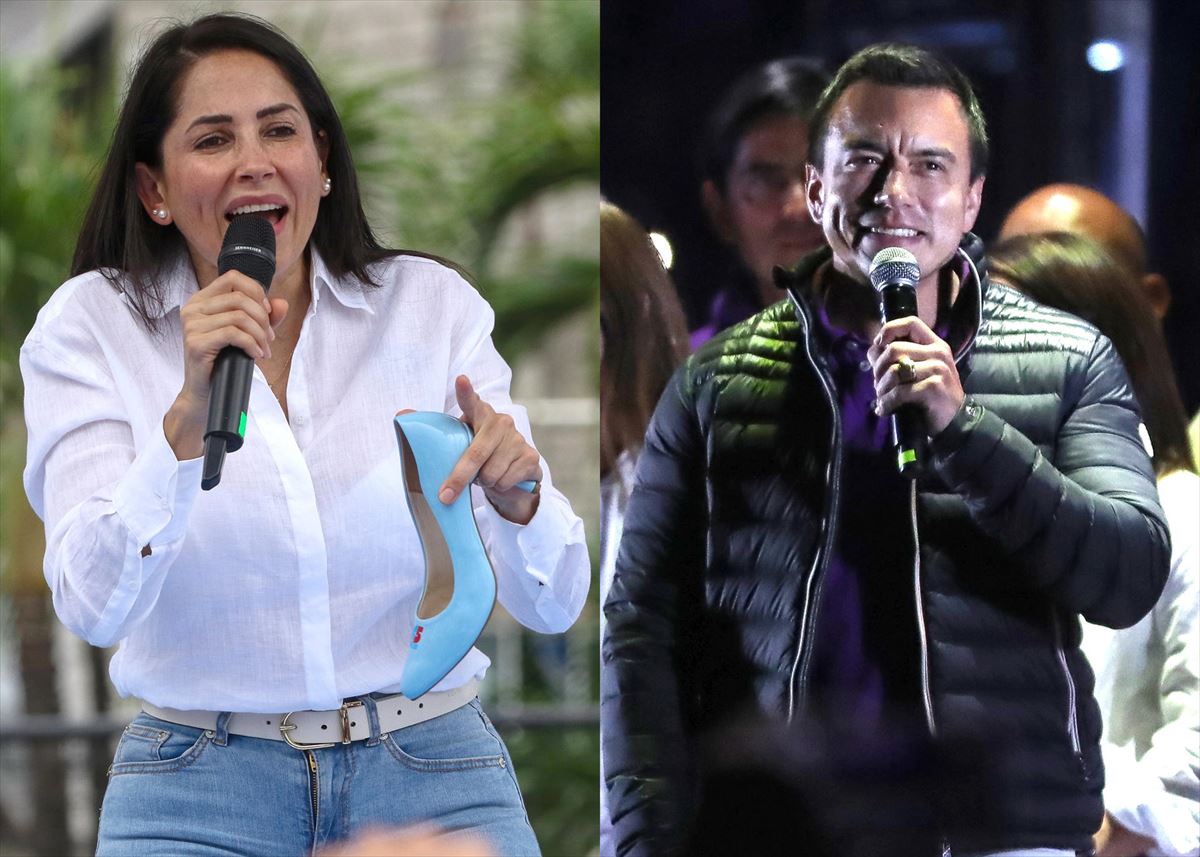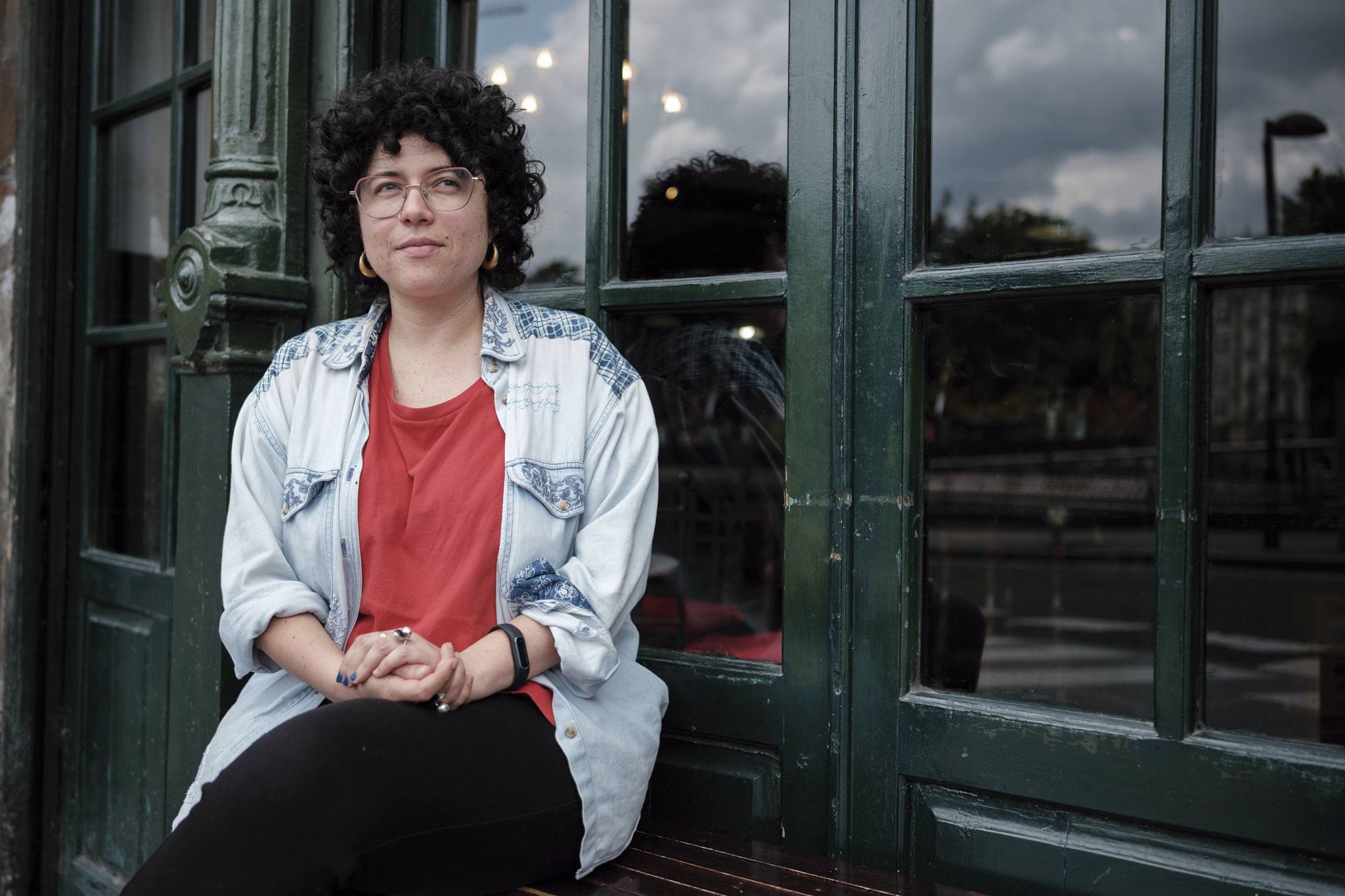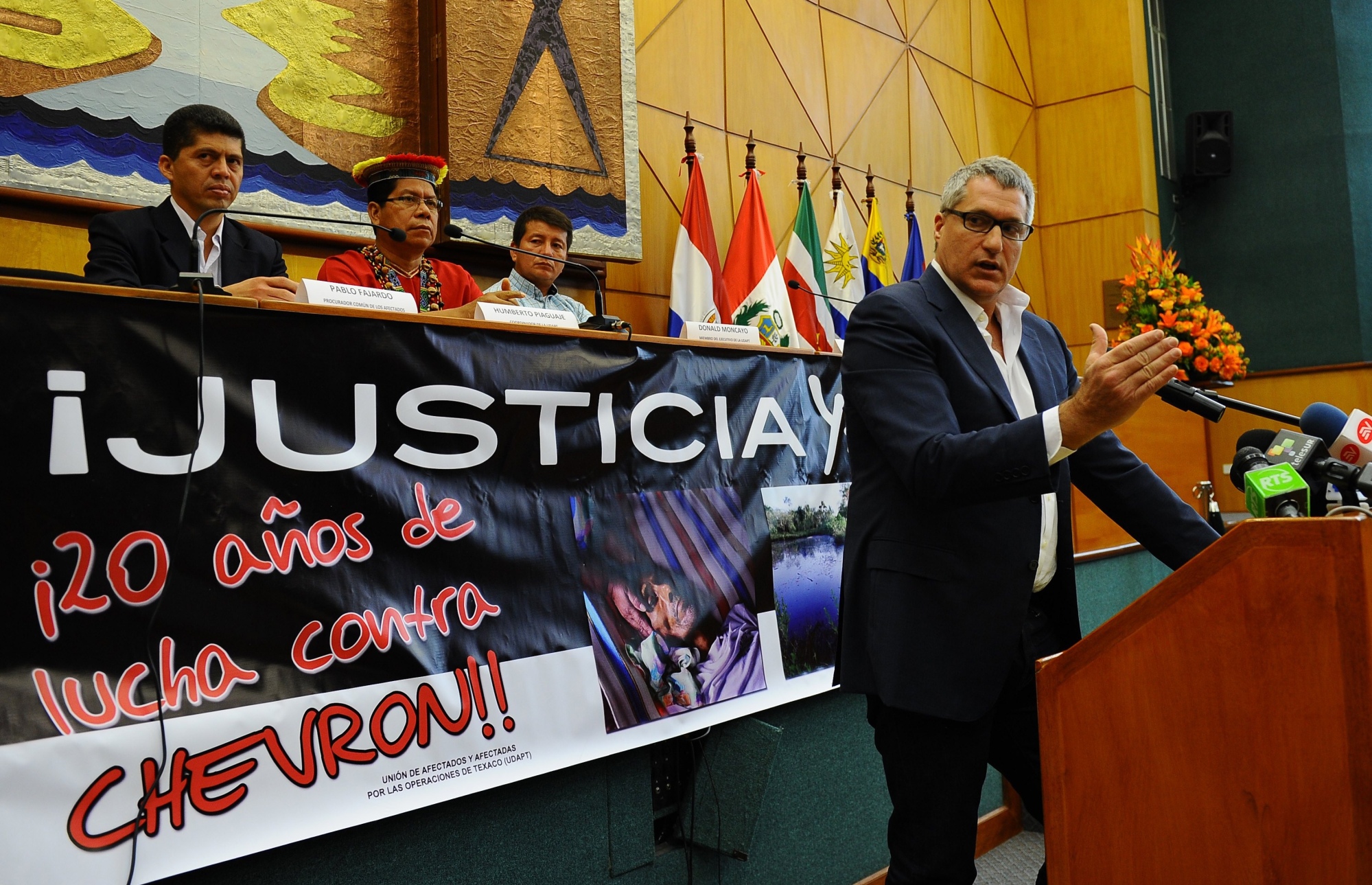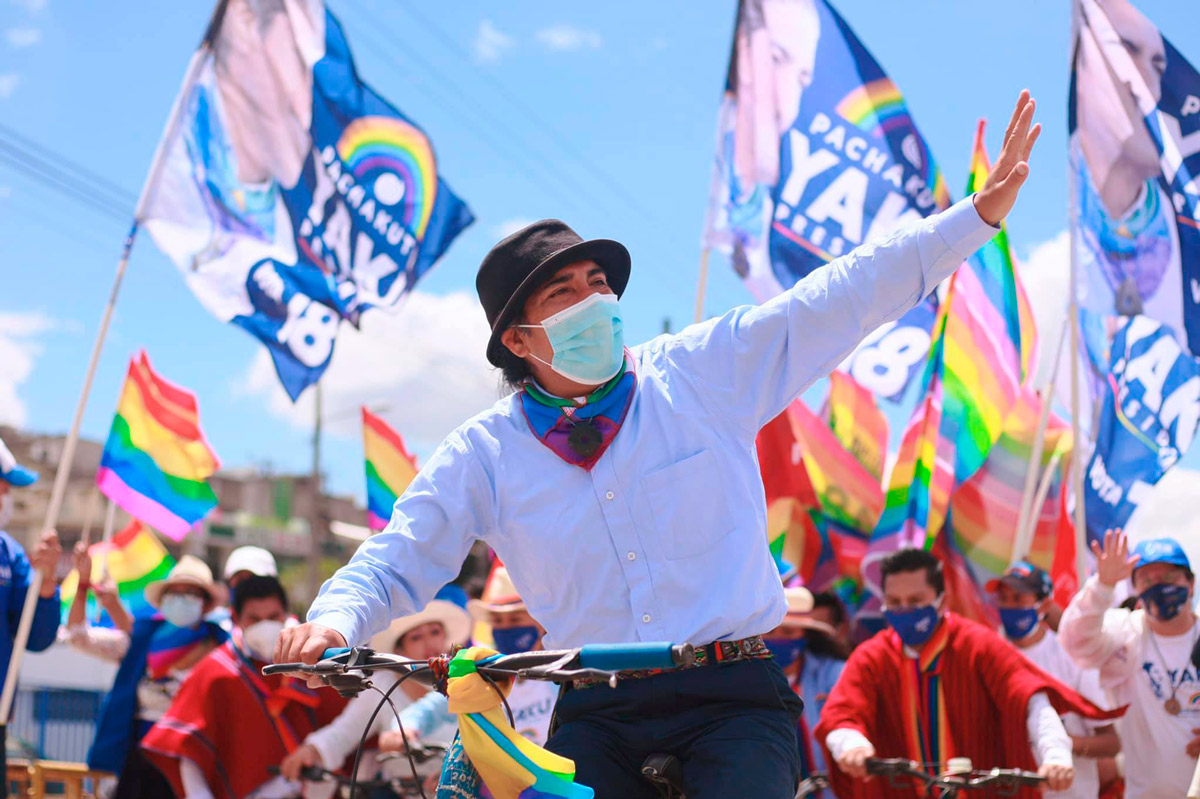Ecuador, in the twenty-first century also in the grip of colonialism
- On the occasion of the second round of the presidential elections to be held on April 11, the news reports from the West will be offered to the Republic of Ecuador, which was handed over to the 2019 rebellion, a lower incumbent. Winning one or another candidate, the cards are still too marked in this game. For the undervalued majority there is not much room for hope.
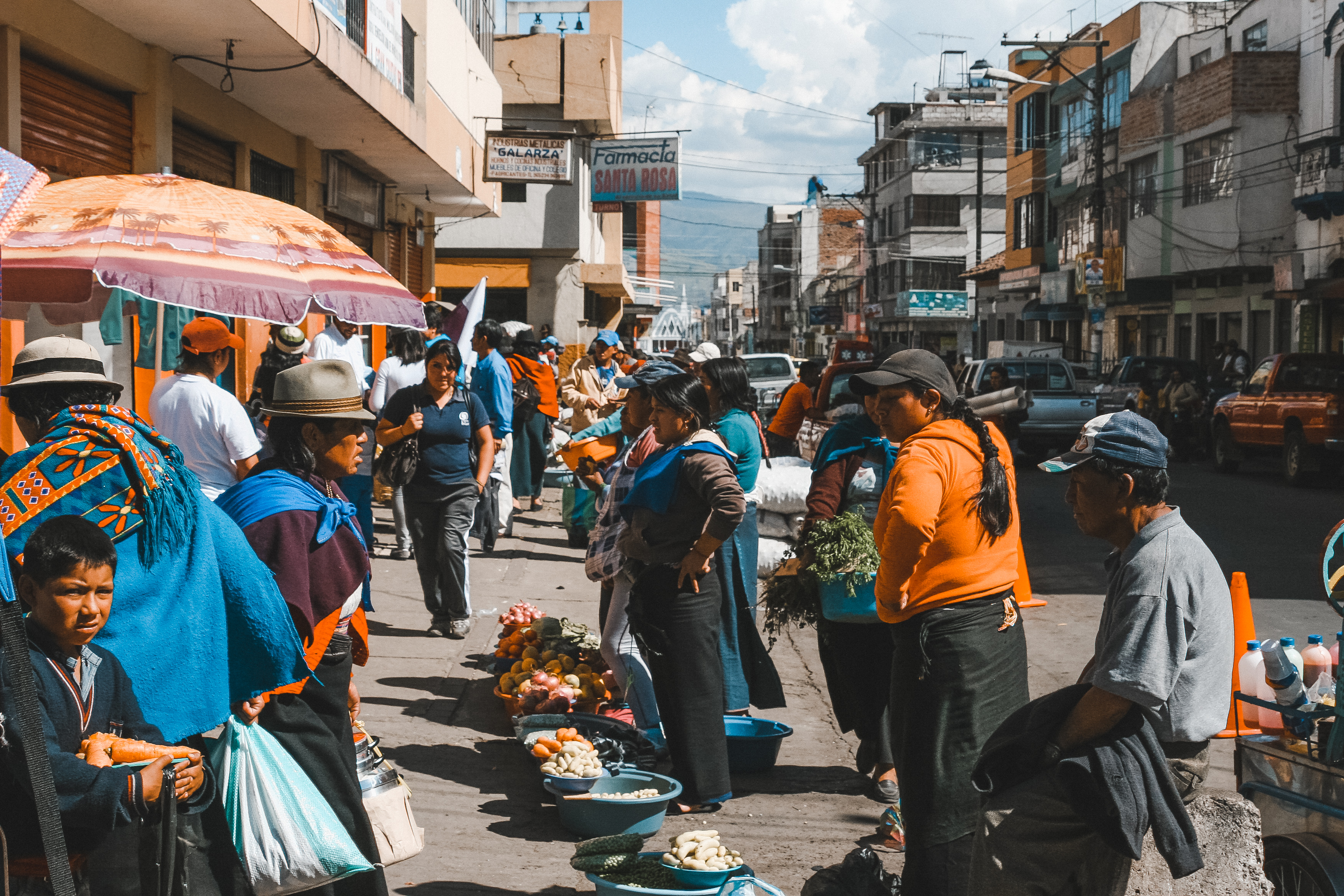
It is difficult not to imagine an American country, be it Arkansas, Honduras or Ecuador, if it is not the “province” of a giant continent that cartographers have drawn in us. As elsewhere, we imagine a rich north and a poor and “backward” south, and the news that comes from that backward south is anecdotal: when they are not catastrophes, the political events we look at with our glasses (elections, coups, rebellions…).
Despite the sympathies with the rebels, our leaders remain colonized and the reality of those worlds is far away. We can match the geographical distance in a single day through commercial or tourist travel, but this only increases the distance under the coverage of proximity. On the other hand, people coming from these countries to work and live are becoming more and more frequent among us; it is clear on what social level these workers and immigrants are left.
Ecuador could be a clear example of this: the territory is relatively small (half of France and 17 and a half million inhabitants), compared to Colombia in the northern border (four times widest and tripling the population) or to Peru in the south (five times widest and double in the population). Moreover, it has had to be defined in its history against those “giants” of the north and the south: “Gran Colombia” tried to conquer Ecuador, and with Peru there have been continuous wars and territorial confrontations since its founding in the early nineteenth century, the last in the 1990s.
From time to time, some news items appear in our news reports, such as chilling images of the pandemic in Guayaquil or new massacres in its prisons. There are more titles in megápoles like Mexico City, New York or Buenos Aires, but we read them from the same perspective.
The Arauz-Lasso
competition will be held on 11 April, with the second round of elections to Andrés Arauz (36 years) and Guillermo Lasso (66 years). Normally, he is the heir of Rafael Correa (president until 2007-2017; impeller of the Movement of the Citizen Revolution) and Lasso, a real right-wing right-wing right-wing right-wing right-wing right-wing right-wing right-wing right-wing right-wing right-wing right-wing right-wing right-wing Minister of the International Monetary Fund (OPUS). To reach this second round Lasso had to compete with the indigenous Yaku Pérez, both in very similar votes, but Pérez denounced the fraud. This complaint was filed in court as evidence of 20,000 failed minutes, but it was not accepted… In the public debate at the end of March, Arauze himself admitted the fraud by reproaching Lasso: “I would need to argue with another right now, not with you.”
It was clear that one such as Yaku had no place in the presidential competition, at least on this occasion. The Pachacuti movement he is leading has called for a null vote in these elections as a way of participating in the vote, so that if the null votes were more than the votes of the two main parties, the elections would have to be repeated. It's almost impossible for something like this to happen, but Pérez has defined movement as a third way.
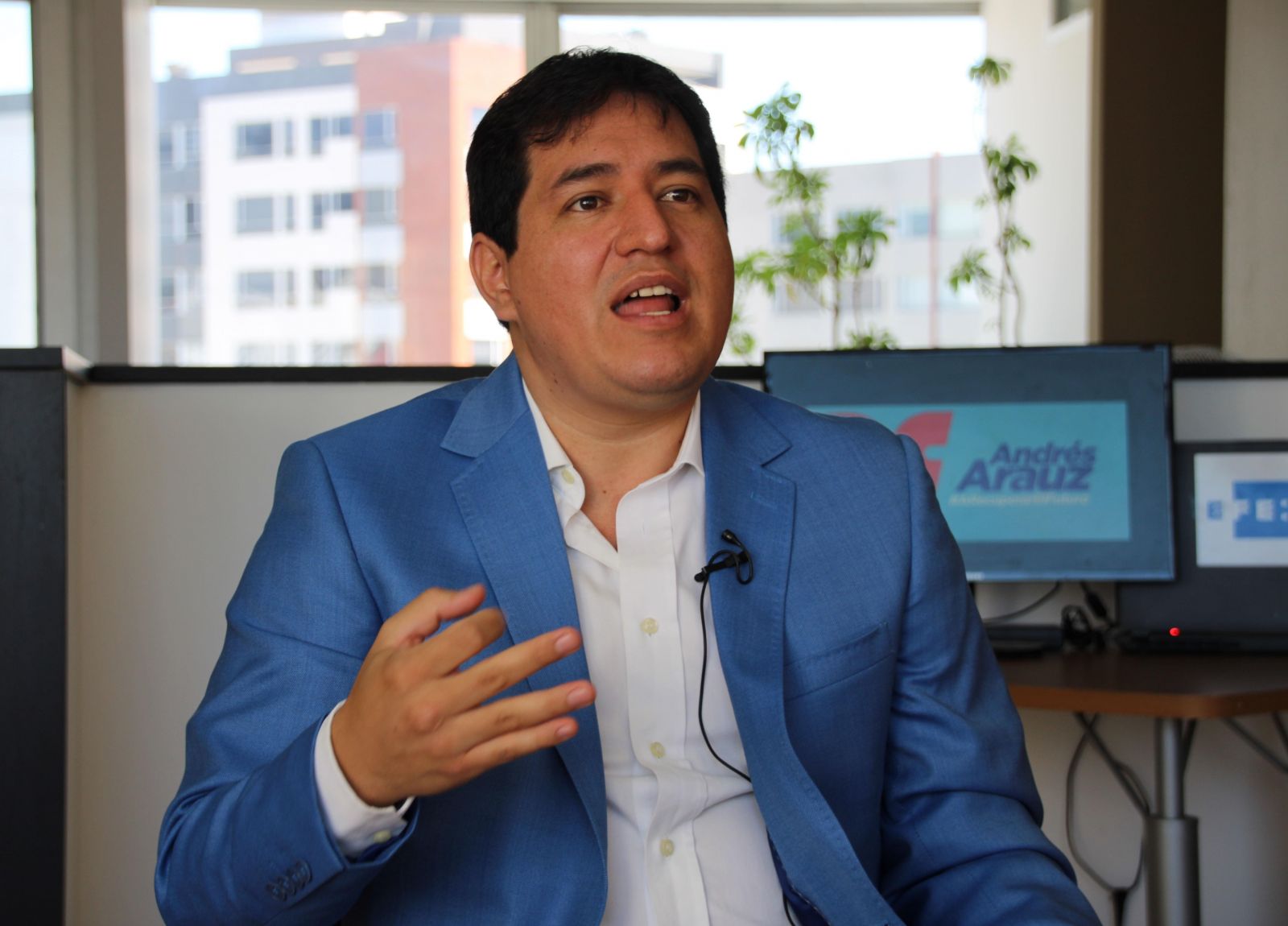
But these elections are only a very transversal indicator of their reality, and it is enough to listen to the speeches of the candidates to detect that they draw a “parallel reality” that allows the raw fact to thicken with swollen promises and false hopes. It would be enough to list the news of recent months to make tupust with a much more credible feature of reality: the imprint that the pandemic is leaving, like the deaths on the streets of the major cities of Guayaquil and Quito; public hospitals without intermediaries and private hospitals closing doors. Or the synchronous riots in the prisons of the major cities a month ago, in which 80 prisoners were killed, highlighting the terrible situation in the prisons.
.jpg)
Poverty and inequality have skyrocketed in recent months: official data indicate that “poor” and “extreme poor” have risen from 34% to 47% in one year. The “poor” have a couple of dollars or less to live up to the day and only the “extreme poor”. In addition to these average figures, poverty of 47 per cent, it should be noted that 70 per cent is poor in rural areas, where only 2 per cent have “full employment”. It is a total employment, in official language, that exceeds the legal minimum wage for his work set at $400.
On the other hand, one of the keys to understanding the flow of authorities, Ecuador approved in 2008 the most progressive constitution that could exist in the world in terms of the recognition of rights. Accepted to the public
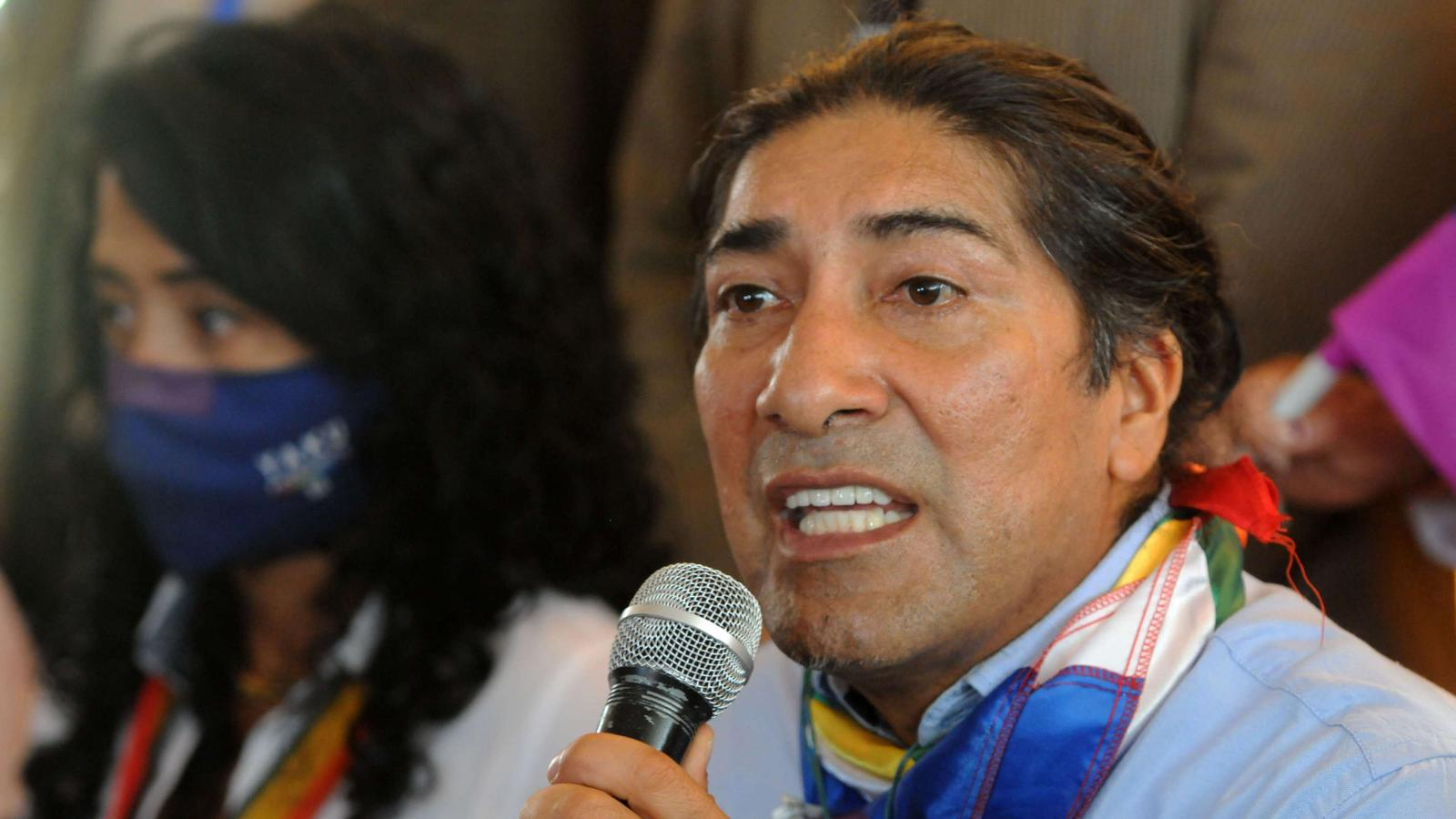
nature rights and rights (Article 10); the centrality of water is recognised in Article 12, as well as food sovereignty, for example. Polluting substances are expressly prohibited (Article 15) and the rights of prisoners, minorities and other more vulnerable groups are precisely defended. As for the indigenous people, he says that “the preservation of the imprescriptible property of common lands will be non-transferable, inembarkable and indivisible. These land shall be exempt from the payment of fees and taxes.” In addition, “to ensure the culture, tradition, dignity and diversity of stories and aspirations in public education and in the media; to create the means for social communication to take place in their languages and to access the rest of the media without any discrimination” (Chapter 4). Bilingual education, etc. Heaven's regulations seem, literally, line line.
As has already been said, in 2008 this new constitution was approved, becoming the centrepiece of Rafael Correa’s electoral campaign, with the aim of overcoming the previous one in 1998. Under the chairmanship of ten years after Correa, thousands of rural schools were destroyed and the indgenist movement that departed at first had to face it, since the stractivism and exploitation of devastating mines was only multiplied. Since the Ecuadorian independence of 1809, more than twenty constitutions have been approved. Everyone is accustomed to the wet paper and the secretion of swollen words from politicians and other elites.
When we
talk about the dollarization of the currency in South America and Central America, we often hear about poverty, extreme inequality and corruption in it. They didn't start with 16th-century European colonialism. The former empires (Incas, Mayans, Aztecs...) followed the same path when it came to dominating other people, but Europeans were a milestone. For them, the lands and people of America, not to mention the slaves brought from Africa, were only a source of wealth for the materialization of the system known as capitalism. The independence of the nineteenth century did not substantially change the situation and the second half of the twentieth century became the “backyard” of the United States in the countries of the South.
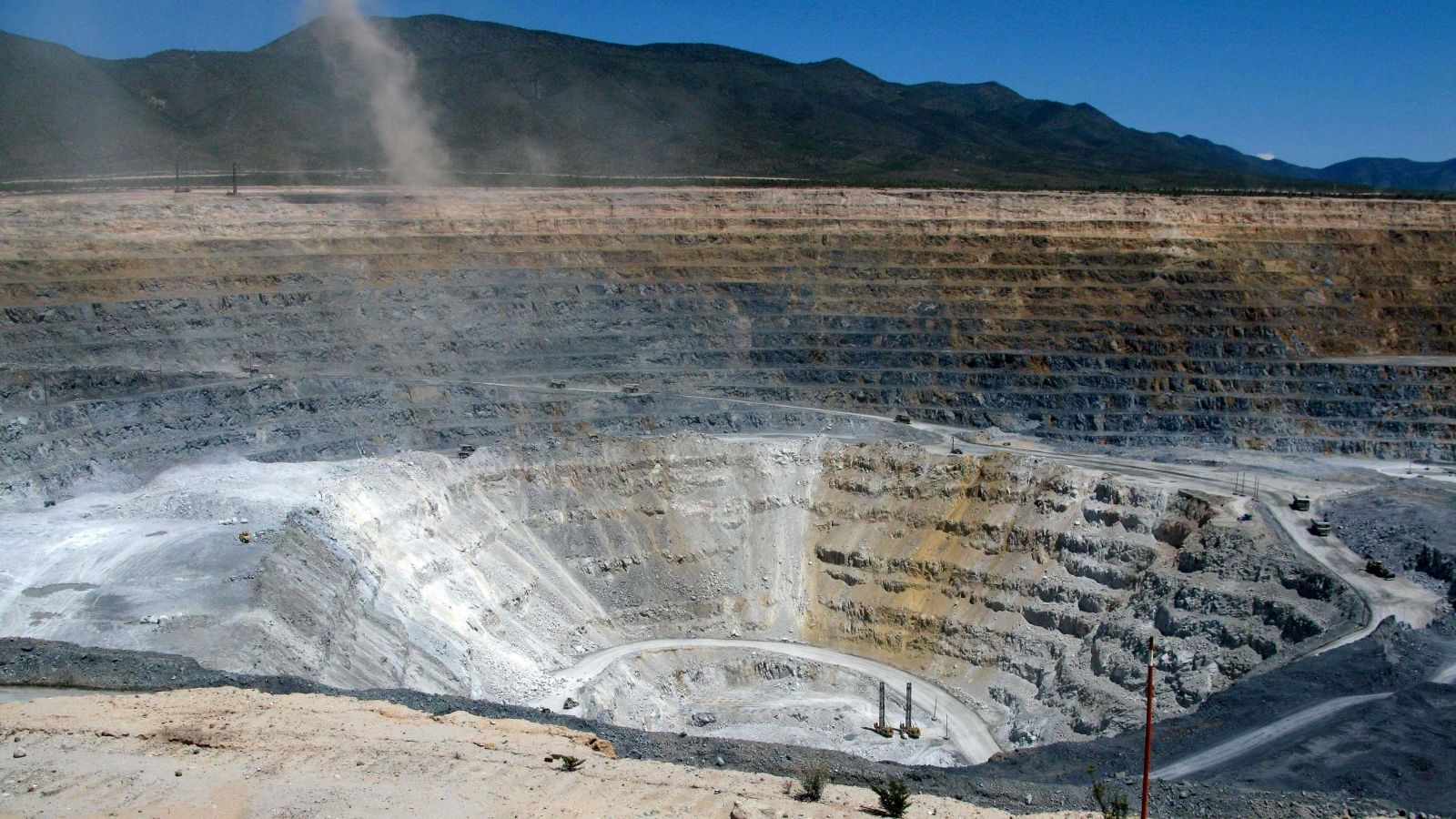
Returning to the twenty-first century and in the particular case of Ecuador, these are two essential facts to understand their fluctuations. The first is related to the economic crisis that spread out without control at the end of the last century, and in response to it, the measure taken by the local elites: to eliminate the national currency until then (“sucrea”, created in honor of Antonio Sucre, general liberator born in Venezuela and died in Colombia) and to put the US dollar into effect in the year 2,000. In the previous months he experienced a process of hyperinflation: in one week the value of a dollar of 7,000 sucras rose to 19,000. The government set up a “bank holiday” (in the style of the Argentine “corralito”), the closure of banks and the ban on taking money out of them, but this measure only made the situation complicated: millions of people saw that all their savings were left to nothing. The such-dollar levy was 28,000 by December 1999; the banks sank and were rescued.
But as usual in these cases, the elites knew all of this before it happened, and they put millions of dollars into a safe place. About four million Ecuadorians (almost a quarter of the population) were left with nothing and went abroad: United States and Canada, Colombia and Venezuela, Spain and Italy. The leakage of money has not stopped and the gap between the poor and the rich has continued to grow. The first source of foreign exchange is oil, the second is the money that poor migrants send from abroad to support their families.
The loss of monetary sovereignty is a genuine servitude for the State, but we are not going to enter the esoteric hierogons of the economy here. Just think of the average wage EE.UU. is ten times higher (and very few charge so much) than that of the Ecuadorian base: all its assets are a bargain for any of Iparralde, even for us.
“Correism” has been the
phenomenon that has marked the twenty-first century from the leap from economy to politics, to the extent that this is possible. President Rafael Correa was placed among the progressive governments that spread throughout Latin America, in a heterogeneous group formed by Bolivia Evo Morales, Lula Da Silva in Brazil, Hugo Chavez in Venezuela or Néstor Kirchner in Argentina, among others, “XXI. Subordinate socialism”.
In the decade of Correa (2007-2017) there were a number of changes in the State – we have already mentioned that of the Constitution – and many people were able to join. His former vice-president, Lenin Moreno, won the next elections, although he soon betrayed himself and turned to the right to carry out his neoliberal policies. Again, it will be no surprise that Correa’s candidate, Andrés Arauze, won next week. Brokerage has many enthusiastic followers, but also passionate enemies, and not only in the economic elites.
As soon as he got the presidency, Correa went to China to sign contracts with them. And we know how the Chinese are going around the world: the debts of states that need liquidity in exchange for their assets: mineral resources, infrastructure, commercial contracts… all in complete opacity and stepping up all the resistance that turns on. I recall statements by a foreign left in this year’s election campaign: “What do the opponents of estractivism want, so that later on the capitalists will take advantage of all these buried goods? It is better to take advantage of ourselves for the good of the people.”
.jpg)
I addressed this issue more broadly at the LARRUN in October 2019, but in short, in these operations there is a very small percentage in the territory – and most of it in the hands of lords and authorities at all levels – the rest goes to the operators’ bosses, leaving a disaster and misery for most land and the population. New oil and mining holdings are currently developing in a very short period of time and their devastating effects have no return.
Correa was an estractivist without any conceit, who showed a strong wave against the movements that were put in front of him, including the deaths caused. But that is not his only dark side: the aggressive male chauvinist, who publicly referred to the “disgusting flocks”, is also a prominent racist, corrupt, who has chartered a balance for the theft of money and, keeping the long tradition of his authorities, was absent when he had to leave power abroad. It also promoted direct aid to the poor among the poor; that is the measure of the former among the authorities of their style: to extend in them a small part gained from looting, gaining accession. I have nothing against limosnes unless I find it a dirty political trap when it comes from the hands of the big authorities.
The news of the last days: Andrés Durazno, an activist in defense of the land and water of Llantahuayco (Azuay), has been killed in his house on 17 March.
I am not going to enter into forecasts for the future. It wouldn't be a bad thing if the people of Ecuador were able to look and listen with less bias, even if it was in a bruising way.











